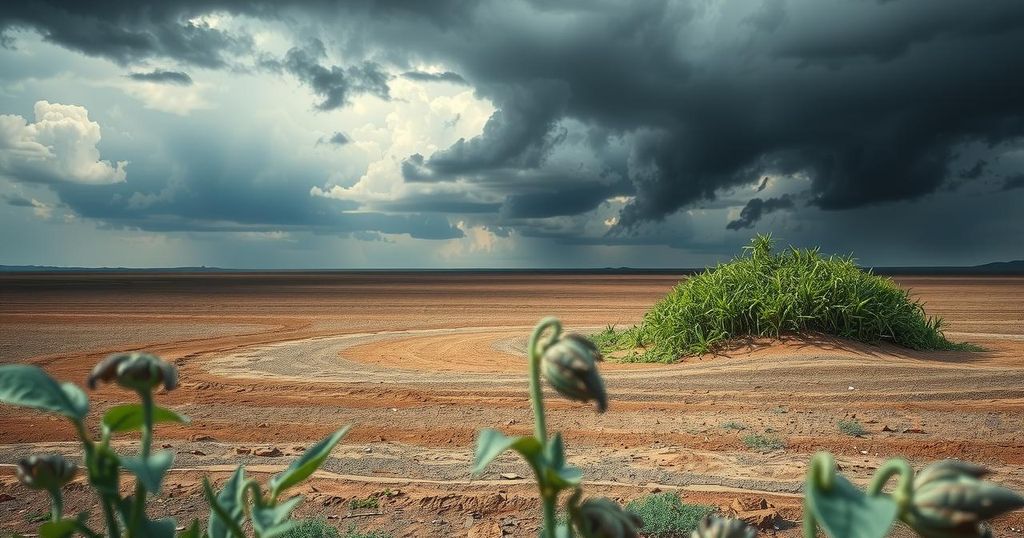Malaria deaths in Ethiopia, primarily in Oromia, are rising due to ongoing conflict and climate change. Lema Tefera, a local farmer, lost four children to the disease, citing a lack of treatment caused by fighting. The WHO reports millions of malaria cases, with Oromia accounting for significant portions. Disrupted health resources and rising temperatures contribute further to the crisis, prompting fears of worsening conditions.
Ethiopia is facing a severe malaria crisis, primarily in the Oromia region, exacerbated by ongoing conflict and climate change. A local farmer, Lema Tefera, tragically lost four of his children to malaria in a month, stating, “There was no malaria medication and treatment in our village due to the fighting.” The World Health Organization (WHO) reports that Africa has about 95% of the global malaria cases and over 600,000 deaths annually, with Ethiopa recording 7.3 million malaria cases and 1,157 deaths in just the first ten months of last year.
The ongoing conflict between the Ethiopian government and the Oromo Liberation Army (OLA) since 2018 has led to a significant disruption of health services. Doctor Gemechu Biftu explains that the conflict has resulted in interrupted supplies of anti-malarial drugs, worsening the situation. Many villages, like Lema’s Lalistu Lophi, struggle to access crucial treatment, contributing to the rise in malaria-related deaths.
Malaria cases in Oromia, which accounts for nearly half of Ethiopia’s malaria cases, have skyrocketed as health facilities collapse under the strain of conflict. Legesse Bulcha, director of Nejo General Hospital, noted that malaria treatment constituted 70% of his hospital’s patients in 2023-2024, compared to only 20% previously. Alongside conflict, climate change is playing a critical role, with rising temperatures creating suitable conditions for malaria-carrying mosquitoes.
Doctors Without Borders’ Rachelle Seguin highlighted 2024 as potentially seeing the highest malaria case numbers recorded. She characterized the troubling situation as a “perfect storm” due to the dual impacts of rising temperatures and prolonged conflict. This impending rainy season is expected to exacerbate the crisis further. Additionally, the recent US aid funding freeze, significantly affecting malaria control efforts, raises concerns about increased morbidity and mortality from malaria and other communicable diseases.
For individuals like Lema, the personal toll is devastating; he remains emotionally and financially crippled, relying on family support to survive. His sentiment captures the human impact of this crisis: “I have been completely depressed. I have not been able to recover from the grief.” With rising malaria cases combined with a lack of resources and ongoing conflict, Ethiopia wrestles with an urgent public health crisis threatening many lives.
The escalating malaria crisis in Ethiopia, particularly in the Oromia region, is driven by the confluence of ongoing conflict and the effects of climate change. Disruption in health services and medication access exacerbates morbidity and mortality rates. The statistics highlight a critical public health emergency as the region braces for another rainy season, potentially worsening the malaria situation. The humanitarian toll emphasizes the urgent need for immediate intervention and support to prevent further fatalities.
Original Source: www.malaymail.com






